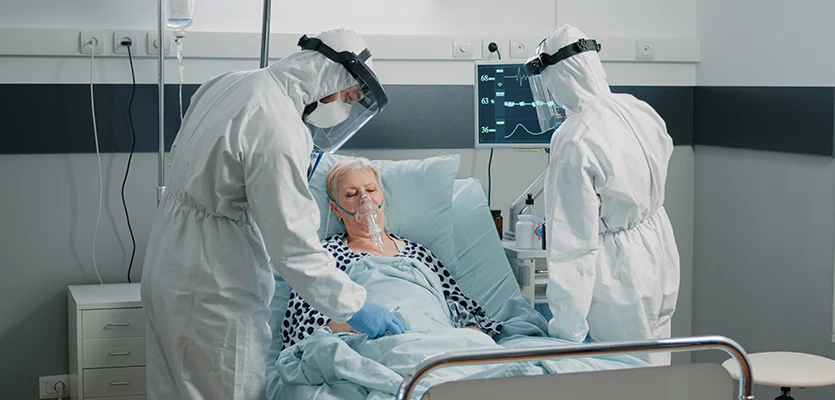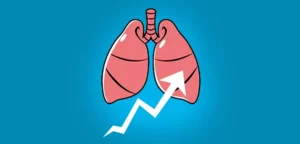Getting a lung transplant is a major life altering decision. The recovery process after a lung transplant is long and tedious. You need to make sure that your surgeon and the transplant team are available to answer your questions and make sure you’re comfortable with your choices, pre, and post-surgery.
For most patients, the first year after the transplant is the period when surgical complications, rejection, and infection pose the greatest threats. This is the most critical period for the patients recovery. Thus, taking certain precautions after lung transplant surgery is of utmost significance. Many people return to good health and quality of life within three to six months post-surgery. Before we inform you of the precautions, let us quickly guide you through the important things you need to know about lung transplants.
Lung Transplant Surgery
A lung transplant is a surgical procedure wherein a diseased lung is removed and replaced with a healthy lung from a different individual. One or both lungs may be subjected to surgery. Although a lung transplant is a major surgical process with numerous potential risks, it can significantly enhance your health and quality of life.
When deciding whether to get a lung transplant, make sure to be well informed about the procedure, the surgery, any potential hazards, and the aftercare. How To Stay Healthy After Lung Transplant?
Why Is Lungs Change Operation Needed?
Your lungs can become damaged and incapable of performing their functions due to a number of illnesses, lifestyle choices, and disorders.
Your body may find it challenging to obtain the oxygen it requires to survive if your lungs are unhealthy or damaged.
Lung damage may often be treatable with medication or with special breathing devices. However, when these measures no longer help or the lack of proper lung function becomes life-threatening, your doctor might suggest a lung transplant.
Types Of Lung Transplant Procedure
The doctor decides whether or not a lung transplant operation is right for the patient based on the patient’s health and medical history.
A lung transplant may be one of the following types:
- Single Lung Transplant: A single lung transplant, is a surgical procedure in which the patient gets one lung from a healthy volunteer or a deceased donor.
- Bilateral lung transplant – or a double lung transplant is the process where the patient receives a set of healthy lungs from a deceased donor.
- Combined Heart And Lung Transplant: The patient receives a set of healthy lungs and a heart from a deceased donor in a combined heart and lung transplant.
Lung Transplant Criteria
A lung transplant is the best course of treatment for those with severe lung illnesses and those who fulfill specific lung function criteria.
In general, you are an excellent candidate for a lung transplant if:
- You have an illness or condition that makes it difficult for your lungs to function normally. (I.L.D., COPD, etc)
- Drugs and other therapies haven helped your lungs.
- If you don obtain a transplant, you have a life expectancy is of less than one to three years.
- You don have lung cancer.
- You don consume tobacco.
- You are allowed to use immunosuppressive medications.
Approximate Lung Transplant Cost
Based on a number of criteria the cost of a lung transplant in India can range anywhere between 12,50,000 INR to 27,50,00 INR approx.
The single lung transplant cost in India is around 25,00,000 INR.
The double lung transplant cost in India is around 27,50,000 INR.
The combined heart and lung transplant cost in India is around 5,350,000 INR.
Apart from these, admission fee, surgeon fee, patients age, donor type, patient’s medical condition, post-surgical complications(if any), Lab tests or examination tests such as X-rays, ECG, etc. are some additional factors that may affect the cost of a Lung Transplant.
Lung Transplant Success Rate
The life expectancy of patients following a lung transplant is directly correlated with the ratio of medical advancement. In other words, life expectancy increases as the patient recover more quickly if the surgery is done with advanced medical techniques and procedures.
Approximately 87% of lung transplant surgeries are successful.
According to estimates, the five-year survival rate can reach 50% while the one-year survival rate is around 80%.
Precaution For Patients After Lung Transplant Surgery
- Take every medication exactly as recommended
If you are still on pre-transplant drugs, stop taking them until your doctor tells you to start again.
Always carry a list of all your prescriptions and their recommended doses.
Avoid taking any additional drugs, whether they are over-the-counter or prescribed, without consulting your doctor don stop taking your drugs, without first consulting your doctor, and never take a double dose of a drug.
Medication that is no longer needed or that is old should not be kept with the patient.
- Keep all of your scheduled appointments with your doctor or transplant coordinators.
- Contact your physician or the transplant coordinator if you have:
- A temperature of 99.9 degrees or higher.
- Flu-like symptoms – chills, pains, headaches, vertigo, nausea, or vomiting.
- Cold symptoms- Coughing, sore throat, and runny nose.
- Around the transplanted lung, there is new discomfort or tenderness.
- Increased breathlessness.
- Over the course of three readings, your microspirometry has dropped by 10%.
- Pay attention to all of your symptoms and warning signs. If you have any strange symptoms or signs that worry you, you should always contact your doctor or the transplant coordinator.
- As soon as your transplant doctor or coordinator advises, have your blood collected.
- Promptly notify the Transplant Center of the findings of your blood testing.
- Adhere to the diet that is suggested by you.
- Adhere to your suggested workout schedule.
- Take the required daily pulmonary function testing (twice a day).
- Keep your distance from somebody who has any form of infection.
Even though exercise is helpful as you recuperate, its equally crucial to pay attention to your body. It’s important to remember that your body is unique.
If you experience discomfort or pain, stop and take a break.
For around three months, stay away from any contact sports or activities that might harm your chest, such as football, baseball, golf, and bowling.
In about six to eight weeks following the treatment, you should be allowed to drive.
After receiving a lung transplant, your incision should recover in approximately two weeks.
Remember that everyone hurts and heals differently. After receiving a lung transplant, your recovery timeframes and milestones may differ from other patients. Its crucial to follow your doctors directions and reach out to them if you have questions or doubts about your recovery.
FAQs
Usually, the lung transplant procedure is a cadaveric transplant when the transplanted lungs are taken from a deceased organ donor. Adults who are healthy and don’t smoke can donate a lobe, which is a part of their lungs. This procedure is known as a live transplant.
Like every major surgery, a lung transplant also has its share of complications. This may include: Bleeding, infection, fluid accumulated in the lungs, severe pulmonary edema, formation of blood clots, organ rejection, blocked airways, and blocked blood vessels to the transplanted lung.
There are certain things to consider when your doctor recommends you lung transplant:
Selecting an appropriate transplant center that comes under your insurance plan. Also, check how many transplants the center performs annually and its success rate. Check whether the center provides additional services such as nearby accommodation for your recovery period, travel arrangements, and other information as per convenience.

.webp)



